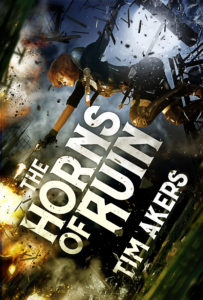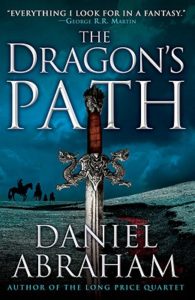The Game Writing Nebula
Yesterday, SFWA announced that they were adding a Game Writing category to the Nebula Awards. The exact specifications for eligible material aren’t available yet, though the announcement says “all forms of game writing”, so it doesn’t seem they’ll be actively limiting nominations, at least initially. I have some thoughts.
First, yay, good for SFWA. They need to expand their fold to include storytellers in the new media, since the old categories of novel, novella, novelette, and short story are antiquated and terribly arbitrary in the current market. I’m not sure where they stand with graphic novels. Some part of my brain says that graphic novels have won Nebulas in the past, but I could be wrong, but if not they should probably expand in that direction as well. But for now, they’re including game writing, so let’s talk about that.
I’m worried that this award is going to become “Writing that happens to appear in games” rather than a proper game writing award. What do I mean by that? Well, a good game writer is creating narrative through the game, through the player’s interactions with the game world, the rules systems, other players, and so on, and so forth. It’s a great deal more than the words that appear on screen (or in the printed supplement, more on video games versus tabletop in a different post) or the dialog spoken by the characters. It’s a matter of narrative, driven through game play.
Let me give you two examples in the same game. I play a lot of World of Warcraft, and the latest expansion has seen both some of the best narrative storytelling and some of the worst. The story progresses through patches, and at the end of the last patch, the players were involved in freeing an ancient elven city, Suramar, from its oppressive rulers. During a great disaster in the past, the rulers of this city were forced to isolate their civilization from the rest of the world (this happens a lot in WoW, letting the developers reveal new gameplay areas by ending the new area’s isolation through various mechanics) and now, as they emerge from their exile, those same rulers have made a deal with demonic forces to ensure their continued survival.
The players get involved with dissident forces in the city, slowly loosening the demonic grip on the city, and eventually leading a revolution. It unfolded over several months of gameplay, starting with the players sneaking around the city, avoiding guards, making contacts among the resistance and manipulating political shifts in the city council, and then evolving into a full-fledged military invasion. It was very well written, with the missions leading through a narrative campaign that really made the players feel involved in the fate of this city.
It was fun. It was involving. And, frankly, it was a good story, well told. It wasn’t the dialog or cut-scenes that made it, though those things played a role in making the characters feel alive and the player’s interactions real. The quality of that patch was in the mission design, the natural flow of the narrative progression; in short, the game was well written.
The next expansion was the opposite. The players are dumped on an island and given random quests, told to collect supplies, and set on an endless cycle of constructing buildings that are then torn down by the demons and must be rebuilt. As stories go, well, Sisyphus had a more complicated plot line.
That’s the difference. That’s good game writing. But it has nothing to do with the writing in the game. The dialog and cut scenes are just as good in the new patch, the characters just as interesting, but the game play is awful. The narrative has stumbled, and that’s what makes good game writing.
Look, I’m glad SFWA is trying to grow the relevance of their awards. They’ve suffered from Cool Kids Club syndrome for a long time, and hopefully this change can help that, but I’m not yet convinced. I get the feeling that if Neil Gaiman wrote the dialog on a mobile fidget spinner, it might get nominated. I hope I’m wrong. Because the stories the next generation will be listening to will come to them in games, not in books, and if we’re going to keep our gigs as storytellers, we need to start thinking outside of the page.

